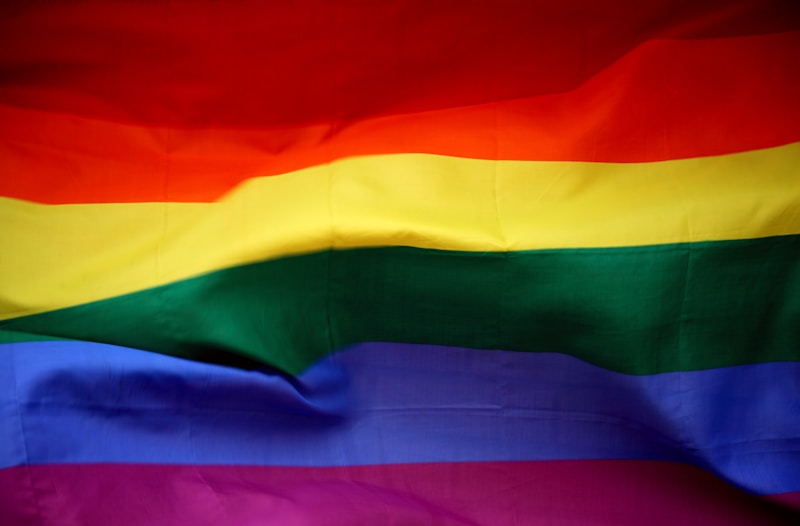Celebrating Love’s Spectrum: Embracing the Diversity of Relationships
Introduction to Love's Spectrum
Love is a universal language that transcends boundaries, cultures, and social norms. It manifests in myriad forms, each contributing uniquely to the rich tapestry of human experience. In this article, we delve into the concept of "Celebrating Love’s Spectrum," exploring the various dimensions of love, the significance of embracing diversity in relationships, and how we can actively celebrate this spectrum in our daily lives.
The Many Forms of Love
At its core, love is an emotion that binds individuals. However, how we express and experience love can greatly differ. Here are some notable types of love that fall within this spectrum:
| Type of Love | Description |
| Romantic Love | A passionate affection for someone, often characterized by desire and emotional attachment. |
| Platonic Love | A deep friendship that doesn’t involve sexual intimacy, rooted in emotional connection and mutual respect. |
| Familial Love | The bond between family members, often unconditional and deeply ingrained in social and cultural contexts. |
| Self-Love | The practice of caring for and valuing oneself, essential for building healthy relationships with others. |
| Unconditional Love | A type of love without conditions or limitations, often associated with parental love. |
Understanding the Importance of Celebrating Love's Spectrum
Recognizing and celebrating the diverse forms of love is vital for fostering inclusivity and understanding in our communities. Here are a few reasons why this celebration is imperative:
1. Promoting Inclusivity
In a world that often emphasizes normative relationships, acknowledging love's spectrum promotes inclusivity among all relationship types. This recognition can help people feel validated and accepted, regardless of whom they love.
2. Building Empathy
Understanding different types of love fosters empathy. When we learn about the experiences of others—be it same-sex couples, platonic friendships, or familial bonds—we become more compassionate and understanding individuals.
3. Enhancing Personal Relationships
By celebrating love's varied forms, we can also improve our own relationships. Acknowledging that love comes in many shapes and that each type deserves respect can lead to deeper connections with others.
How to Celebrate Love’s Spectrum in Everyday Life
Now that we understand the importance of love’s spectrum, let’s explore practical ways to celebrate this diversity:
1. Education and Awareness
Educating ourselves and those around us about the various types of love can help dismantle stereotypes and misunderstandings. Consider attending workshops, reading books, or engaging in community discussions that promote awareness of love’s spectrum.
2. Open-Hearted Conversations
Initiate conversations about love's diverse forms with friends and family. Share experiences and encourage open discussions about various relationships—this can break down barriers and foster greater understanding.
3. Celebrating Milestones
Recognize and celebrate significant milestones in all kinds of relationships—be it anniversaries, achievements, or personal growth. Host gatherings that honor these moments, allowing attendees to express their unique forms of love.
4. Supporting Diverse Communities
Get involved with organizations that advocate for various relationship types and forms of love. By supporting these communities, you contribute to a larger movement advocating for inclusivity and acceptance.

Challenges in Embracing Love’s Spectrum
While celebrating love's spectrum is crucial, it is essential to acknowledge the challenges faced by diverse relationships:
1. Societal Norms
Many cultures have established norms around relationships, often excluding various forms of love. Challenging these norms requires a concerted effort from individuals and communities alike.
2. Stigma and Discrimination
Certain types of love, such as same-sex relationships or non-traditional family structures, may face stigma or discrimination. Advocating for acceptance and promoting awareness can help mitigate these issues.
3. Communication Barriers
Different perspectives on love and relationships can lead to misunderstandings. Encouraging open dialogue about diverse experiences can bridge these gaps and foster stronger connections.
Conclusion: Embracing Love’s Spectrum
In conclusion, "Celebrating Love’s Spectrum" is not just an ideal but a necessity in our ever-evolving world. Embracing the diverse forms of love enriches our lives, fosters inclusivity, and bolsters the foundations of strong relationships. Whether through education, open discussions, or community support, we can all contribute to a society that recognizes and celebrates love in its many forms.
As we move forward, let us remember to uphold the principles of acceptance and understanding. Whether in celebrating a milestone, engaging in community awareness, or simply by choosing kindness, we can honor the spectrum of love that exists within and around us.